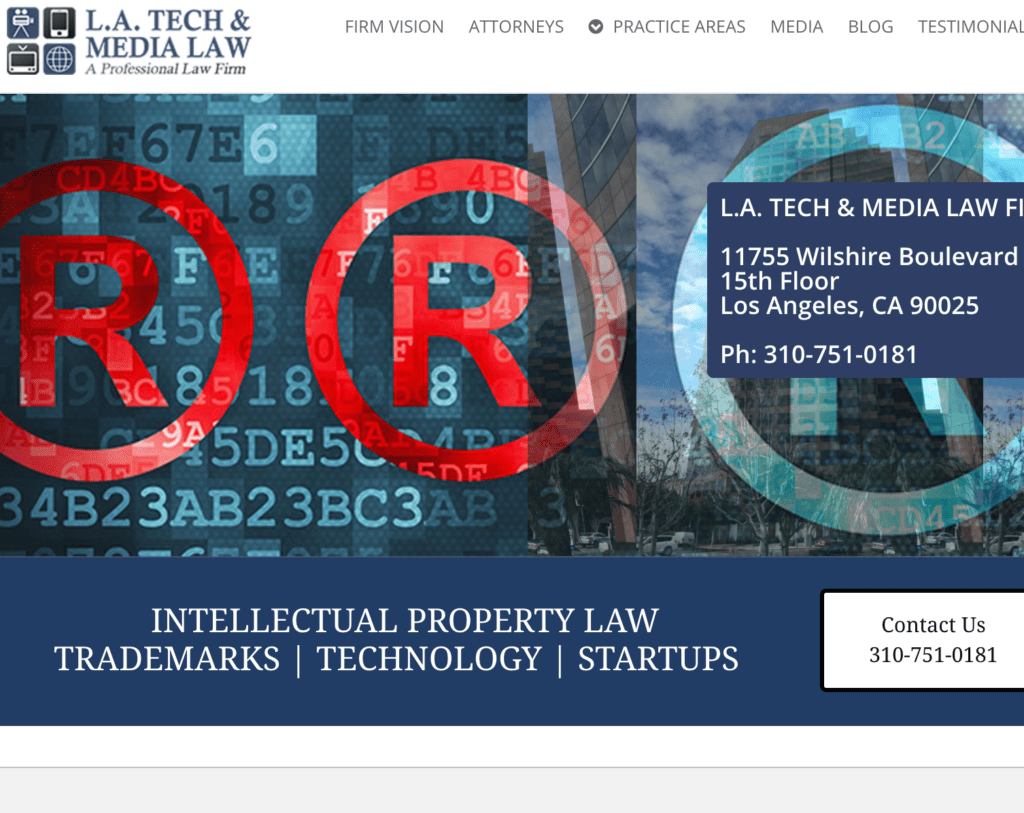A common question entrepreneurs, technology startups and other new businesses have about branding and intellectual property protection is, what’s the difference between trademarks domain names and business name registration, which one is which, and what steps need to be taken to have maximum brand name protection and brand consistency across the trademark, business name registration, and top level domain name or URL.

Legal Definition of Trademarks
Trademarks are defined in the United States Patent and Trademark Office (USPTO) as a word, phrase, symbol, and/or design that identifies and distinguishes the source of the goods of one party from those of others. A service mark is a word, phrase, symbol, and/or design that identifies and distinguishes the source of a service rather than goods. Some examples include brand names, slogans, and logos. The term “trademark” is often used in a general sense to refer to both trademarks and service marks.
Unlike a trademark, a domain name is part of a web address that links to the internet protocol address (IP address) of a particular website. For example, in the web address “http://www.uspto.gov,” the domain name is “uspto.gov.”

When entrepreneurs or technology startups register a domain name with an accredited domain name registrar, not through the USPTO. A domain name and a trademark are different legally speaking. A trademark, as noted above, identifies goods or services as being from a particular source.
Use of a domain name, on the other hand, only as part of a web address does not qualify as source-indicating trademark use necessarily, though other prominent use apart from the web address may qualify as trademark use. Consultation with an expert technology and trademark attorney is recommended to decipher how and when a domain name can also function as a trademark in the United States.
Registration of a domain name with a domain name registrar does not vest any trademark rights automatically, and usually, further use in commerce activity is required. For example, even if a startup CEO or leader of marketing team register a certain domain name with a domain name registrar, that domain name could later be required to surrender it if it infringes on existing trademark rights.
Trademark Rights and Business Name Registration
Under a similar logic, use of a business name registration does not necessarily qualify as trademark use, or vest trademark rights in the United States, though other use of a business name as the source of goods or services may qualify it as both a business name and a trademark, and this is something entrepreneurs and tech startups should consult with an experienced intellectual property attorney.
Many states and local jurisdictions register business names, either as part of obtaining a certificate to do business or as an assumed name filing. For example, in a state where a startup company will be doing business, the founders may file documents (typically with a state corporation commission or state division of corporations) to form a business entity, such as a corporation or limited liability company. The USPTO states: “The founders may select a name for that entity, for example, XYZ, Inc. And if no other company has already applied for that exact name in that state and you comply with all other requirements, the state likely would issue the founders a certificate or business name registration and authorize the founders to do business under that name.”

Trademark Limitations of Business Name Registrations
A state’s authorization to form a business name registration with a particular name does not also vest trademark rights and other parties could later try to prevent the owners of the venture to use a different business name if they believe a likelihood of confusion exists with their trademarks.
Only a trademark vests trademark rights, and while domain names and business name registrations are sometimes related to a company’s trademark rights, and may even be identical, each startup or company brand name and business name registration is, by nature, different, and special considerations of the legal rights to use a brand name, and how they carry over to use in a domain name or business name registation rely on a variety of complex legal and technology factors.

